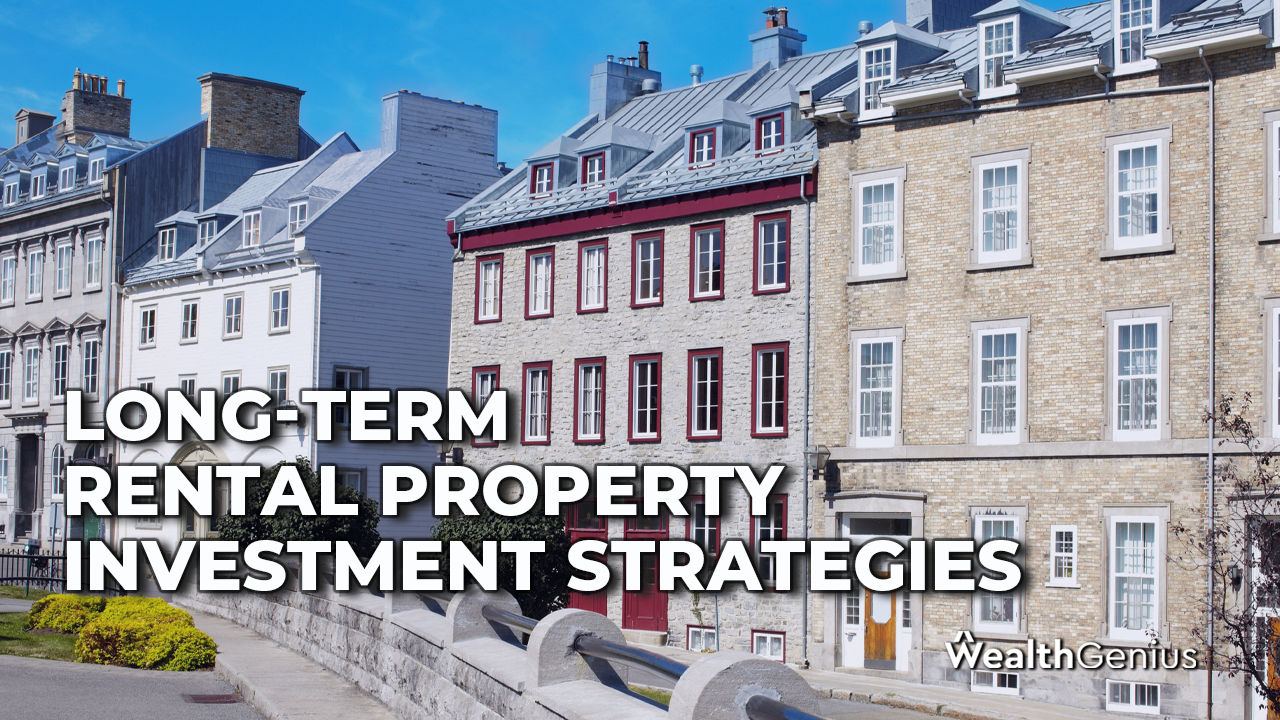Long-Term Rental Property Investment Strategies
Jun 10, 2025
If you're serious about building lasting wealth through real estate, long-term rental property investment strategies are a powerful path forward. Whether you're just getting started or already own a few doors, focusing on smart, sustainable tactics can help you grow a portfolio that generates consistent income and long-term appreciation.
This isn't about overnight success. It’s about playing the long game wisely—and that begins with a solid plan.
Start with Clear Investment Goals
If you're new to investing, understanding the basics of financial planning for real estate investors can set you up for smarter decisions. Before you buy your first (or next) property, get clear on your objectives. Are you looking for monthly cash flow, long-term equity growth, tax benefits, or all of the above?
Let’s say your goal is $5,000 per month in rental income within 10 years. With that in mind, you'll start looking for properties that offer reliable returns, low vacancy rates, and appreciation potential. Having a clear target guides your decisions and helps you track progress.
Choose the Right Property Type
When deciding on your approach, it's also worth exploring the pros and cons of flipping vs. long-term renting to see which fits your strategy.Not all rentals are created equal. Single-family homes, duplexes, and small multifamily buildings each have pros and cons.
- Single-family homes are easy to manage and attract long-term tenants, but they can sit vacant between renters.
- Duplexes and triplexes give you multiple income streams in one property, which can reduce your risk.
- Small multifamily buildings may require more upfront management but offer stronger cash flow and scaling opportunities.
Pick a property type that fits your time, budget, and long-term goals.
Invest in Strong Markets
Having the right real estate investor mindset helps you stay focused when evaluating markets and potential returns.You don’t need to invest where you live. Focus on areas with growing populations, job opportunities, low crime rates, and good schools. These are the ingredients of a stable rental market.
For example, mid-size cities with a steady influx of new residents often offer better returns than overheated coastal metros. Do your research and don’t be afraid to explore out-of-state options if the numbers make sense.
Buy Below Market Value
One of the best long-term rental property investment strategies is buying at a discount. If you can purchase a property below market value, you build instant equity and create room for higher returns.
This often means targeting motivated sellers, foreclosures, or properties that need light renovations. A $200,000 home you snag for $170,000 gives you breathing room to invest in upgrades and boost rent.
Prioritize Cash Flow
Cash flow is your safety net. A property should bring in more income than it costs to own, even after factoring in mortgage payments, taxes, insurance, and maintenance.
Look for properties that generate solid monthly profit from day one. Appreciation is a bonus—but cash flow is what keeps the lights on.
Screen Tenants Carefully
Your rental income depends on reliable tenants. Take tenant screening seriously by checking income, credit, rental history, and references.
It’s better to leave a property vacant for a few extra weeks than to rush and rent to someone who might cause problems. Good tenants protect your investment and make long-term ownership far easier.
Maintain the Property Well
Think long-term. A well-maintained property keeps tenants happy, reduces vacancy, and preserves your investment value.
Create a regular maintenance schedule and respond quickly to repair requests. The goal is to treat your rentals like a business, not just a side hustle.
Use Leverage Wisely
Mortgages can help you grow faster—as long as you manage them responsibly. Using leverage means putting down 20–25% and financing the rest, allowing you to buy more properties than paying cash would.
But don’t overextend yourself. Your properties should still cash flow positively after all debt payments.
Build Systems and Outsource
As your portfolio grows, your time becomes more valuable. Put systems in place early: automated rent collection, bookkeeping software, and property management support.
You don’t have to manage everything yourself. Hiring a property manager can be a game-changer, especially if you own multiple units or invest remotely.
Reinvest Your Profits
Smart investors also leverage tax strategies for real estate investors to minimize liabilities and maximize growth. One of the smartest strategies in long-term rental property investing is reinvesting your profits. Use rental income to:
- Save for additional down payments
- Renovate existing units to raise rents
- Pay down high-interest debt
This creates a snowball effect, where your portfolio grows faster and becomes more profitable over time.
Plan for the Future
As you scale, consider the balance between passive vs. active real estate investing to design a portfolio that fits your lifestyle. Real estate is a long game, and having an exit or transition strategy is key. Think about what you want your portfolio to look like in 10 or 20 years.
Do you want to pass it on to your kids? Sell everything and cash out? Live off the rental income in retirement? Your strategy today should align with your vision for tomorrow.
Final Thoughts: Grow Smart, Think Long-Term
Building wealth through long-term rental property investment strategies takes time, patience, and consistent effort. But with the right approach, it’s one of the most reliable paths to financial freedom.
Start with one smart move, then build from there. Focus on cash flow, treat your rentals like a business, and reinvest your earnings.
Want to connect with other investors doing the same?
Join the fastest growing real estate investment community at WealthGenius. Get access to top-tier education, expert insights, and a network of investors ready to help you scale.
Your long-term strategy starts now. Let WealthGenius help you take it further.
Keep in Touch
Subscribe to our newsletter to receive real estate investing education, investing news, tips and information on upcoming events.
We won't send spam. Unsubscribe at any time.



